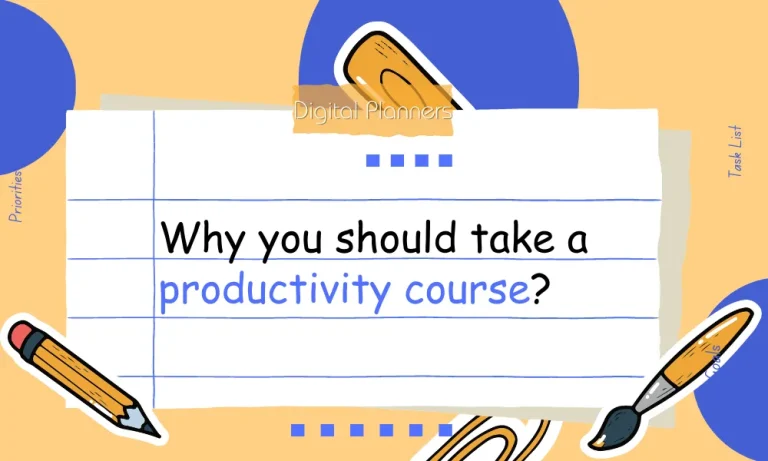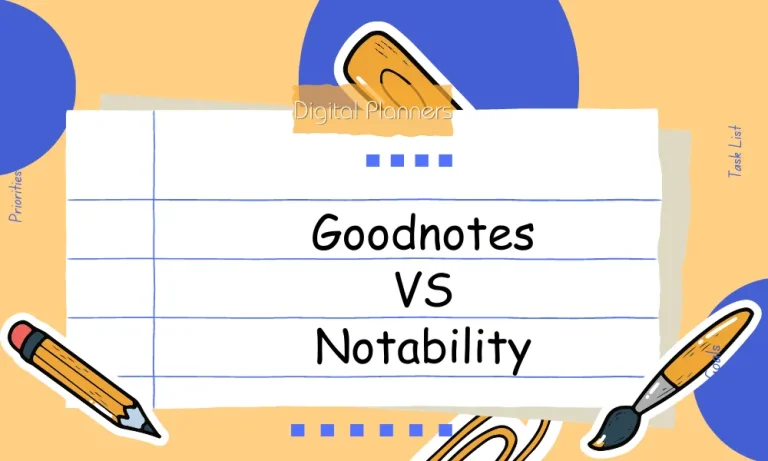Are you tired of feeling overwhelmed and constantly playing catch-up with your responsibilities? It’s time to take control of your life with the help of a personal planner. This simple tool has the potential to revolutionize the way you manage your time, improve your productivity, and create a sense of balance.
Increased Productivity and Time Management
Time management is crucial for achieving success and maintaining a balanced life. By effectively managing your time, you can maximize productivity and accomplish more in less time. One powerful tool that can assist you in this endeavor is a personal planner.
Prioritizing Tasks and Setting Realistic Goals
A personal planner helps you prioritize tasks by providing a clear overview of your commitments. By jotting down your to-do list and assigning deadlines, you can easily identify which tasks are most important and need immediate attention.
This allows you to focus on high-priority tasks and avoid wasting time on less significant ones.
Moreover, a personal planner allows you to set realistic goals. By breaking down your larger goals into smaller, manageable steps, you can create a roadmap to success. This helps prevent overwhelm and ensures progress is made consistently.
With your goals organized and visible in your planner, you can stay motivated and track your progress along the way.
Staying Organized and Focused
Using a personal planner helps you stay organized and focused amidst the chaos of daily life. By writing down your appointments, meetings, and deadlines, you can easily keep track of your schedule.
This prevents double-bookings, reduces the likelihood of forgetting important events, and ensures you can allocate the necessary time for each task.
Furthermore, a personal planner allows you to block out specific time slots for focused work. By designating uninterrupted periods, you can eliminate distractions and fully concentrate on the task at hand.
This promotes deep work and enhances productivity by allowing you to make significant progress on important projects.
Improved Goal Setting and Achievement
Setting goals is a fundamental aspect of personal and professional growth. However, without a clear plan and effective tracking system, goals can remain elusive. This is where a personal planner becomes a game-changer.
Setting SMART Goals with a Personal Planner
A personal planner aids in setting SMART goals – Specific, Measurable, Achievable, Relevant, and Time-bound.
By using your planner to define your goals in a specific and measurable way, you can make them more tangible and attainable. For example, instead of setting a vague goal like “get healthier,” you can set a SMART goal like “exercise for 30 minutes, five days a week.”
Breaking Down Goals into Actionable Steps
One of the key benefits of using a personal planner is the ability to break down goals into actionable steps. This approach ensures that your goals are not overwhelming and can be easily tackled.
By breaking a larger goal into smaller, manageable tasks, you create a roadmap that guides you toward achieving your objectives. Your planner becomes a visual representation of your progress and helps you stay on track.
Tracking Progress and Celebrating Achievements
A personal planner serves as a valuable tool for tracking progress and celebrating achievements. You can use your planner to record milestones, mark completed tasks, and reflect on your progress regularly.
Seeing your accomplishments visually can boost motivation and provide a sense of fulfillment. It also allows you to evaluate what is working and make adjustments if necessary.
Reduced Stress and Anxiety
In today’s fast-paced world, stress and anxiety have become common challenges that many individuals face. However, with the help of a personal planner, you can take control of your schedule and alleviate these burdens.
Clear Overview of Commitments
One of the key ways a personal planner reduces stress is by providing a clear overview of your commitments.
By jotting down your appointments, deadlines, and tasks in your planner, you can visually see what needs to be done and when. This clarity helps eliminate the uncertainty and overwhelm that often contribute to stress and anxiety.
Scheduling Self-Care Activities and Downtime
An important aspect of stress management is prioritizing self-care activities and downtime. With a personal planner, you can schedule time for relaxation, hobbies, and activities that bring you joy.
By intentionally carving out these moments in your schedule, you ensure that you have time to recharge and rejuvenate. This helps prevent burnout and promotes overall well-being.
Managing Stress and Promoting Mental Well-being
Using a personal planner effectively can help manage stress and promote mental well-being. Here are a few tips to make the most of your planner:
- Prioritize tasks: Identify high-priority tasks and tackle them first. This reduces the feeling of being overwhelmed and helps you focus on what truly matters.
- Break tasks into smaller steps: Breaking down larger tasks into smaller, manageable steps can make them feel less daunting. It also allows you to track progress and experience a sense of achievement along the way.
- Practice time blocking: Allocate specific time slots for different activities or tasks. This helps create structure and ensures that you have dedicated time for important tasks, self-care, and relaxation.
- Reflect and adjust: Regularly review your planner to assess your progress and make adjustments if needed. This reflective practice allows you to evaluate what’s working and what’s not, making it easier to manage stress and maintain balance.
Enhanced Accountability and Discipline
When it comes to achieving goals and making progress, accountability and discipline play a crucial role. Fortunately, a personal planner can serve as a powerful tool to enhance these qualities and help you stay on track.
Holding Yourself Accountable with a Personal Planner
A personal planner acts as a reliable companion in holding you accountable for your commitments.
By documenting your tasks, deadlines, and goals in your planner, you create a sense of responsibility and ownership.
Each time you open your planner, you are reminded of what needs to be done, and this visual representation can motivate you to take action.
Importance of Creating a Routine
Creating a routine and sticking to it is essential for cultivating discipline. A personal planner helps you establish a routine by providing a structured framework for your day.
By scheduling your activities and allocating specific time slots for different tasks, you create a sense of order and discipline in your life. This routine enables you to prioritize your goals and make consistent progress.
Strategies for Developing Discipline with a Personal Planner
To develop discipline and achieve long-term success, consider implementing the following strategies with your planner:
- Set clear goals: Clearly define your goals and break them down into smaller, manageable tasks. Write them in your planner and review them regularly to stay focused.
- Plan: Take a few minutes each evening or morning to plan your day. This allows you to visualize your tasks, prioritize them, and allocate time slots for each activity.
- Use reminders and alerts: Leverage the reminder and alert features of your planner to keep you on track. Set notifications for important deadlines or tasks to ensure you don’t overlook them.
- Track progress and celebrate milestones: Regularly review your planner to track your progress. Celebrate small wins and milestones along the way to maintain motivation and boost your sense of accomplishment.
Improved Work-Life Balance
In today’s busy world, achieving a healthy work-life balance can seem like a daunting task. However, with the help of a personal planner, you can effectively manage your personal and professional obligations, leading to a more balanced and fulfilling life.
Balancing Personal and Professional Obligations
A personal planner serves as a valuable tool in balancing personal and professional obligations.
By meticulously scheduling your work tasks, appointments, and personal commitments in your planner, you can ensure that you allocate time for both aspects of your life. This helps prevent the overlap and overload that often leads to burnout and dissatisfaction.
Benefits of Scheduling Time for Hobbies, Family, and Self-Care
One of the key benefits of using a personal planner is the ability to schedule time for hobbies, family, and self-care.
By intentionally setting aside time for activities that bring you joy and relaxation, you create a sense of balance and fulfillment.
Engaging in hobbies, spending quality time with loved ones, and practicing self-care activities are essential for overall well-being and can significantly reduce stress and increase happiness.
Tips for Achieving a Healthy Work-Life Balance with a Personal Planner
To achieve a healthy work-life balance using a personal planner, consider the following tips:
- Prioritize non-negotiables: Identify your non-negotiable personal activities and family time and block them off in your planner. Treat these commitments as sacred and avoid scheduling work-related tasks during these times.
- Set boundaries: Clearly define boundaries between your personal and professional life. Communicate these boundaries to your colleagues, clients, and loved ones. Use your planner as a tool to honor these boundaries and avoid overextending yourself.
- Self-care plan: Schedule regular self-care activities in your planner. This could include exercise, meditation, reading, or any other activity that helps you relax and recharge. Treat these self-care appointments as important as any work-related task.
- Learn to delegate and say no: Don’t be afraid to delegate tasks or say no to additional responsibilities when your plate is already full. Your planner can help you assess your availability and make informed decisions.
FAQs – How a Personal Planner Can Change Your Life
Can I use a digital personal planner instead of a physical one?
Absolutely! Digital personal planners offer convenience and flexibility. They allow you to access your schedule from anywhere, easily make changes, and set reminders. Find a digital planner app or software that suits your needs and preferences.
How can a personal planner help me with time management?
A personal planner is a valuable tool for time management. By scheduling tasks and appointments, you can prioritize your responsibilities and allocate time effectively. This helps you stay organized, avoid procrastination, and make the most of your day.
What if my schedule changes frequently? Will a personal planner still be helpful?
Yes, a personal planner can still be beneficial even if your schedule changes frequently. Look for planners with flexible layouts or digital planners that allow easy adjustments. Being able to adapt your schedule quickly will help you stay organized despite changes.
How can a personal planner improve work-life balance?
A personal planner enables you to allocate time for both work-related tasks and personal commitments. By scheduling time for hobbies, family, and self-care, you create a sense of balance and prevent burnout. This leads to improved work-life balance and overall well-being.
Can a personal planner help me achieve my goals?
Yes, a personal planner can be a powerful tool for goal achievement. By setting specific goals and breaking them down into actionable steps, you can track your progress and stay focused. A planner helps you stay accountable and increases the likelihood of achieving your goals.
Conclusion
A personal planner has the power to transform your life. By enhancing accountability and discipline, it helps you stay on track and achieve long-term success. Furthermore, it promotes a healthy work-life balance, allowing you to prioritize what truly matters.




